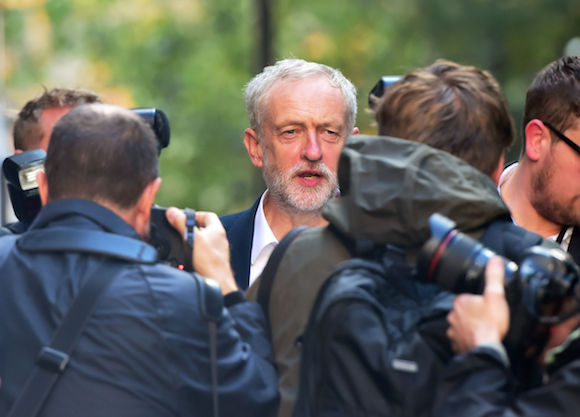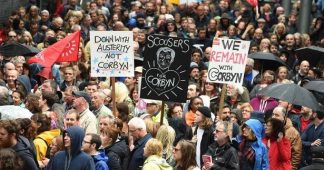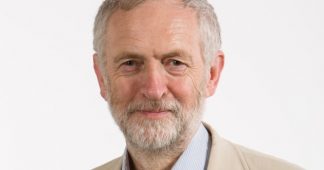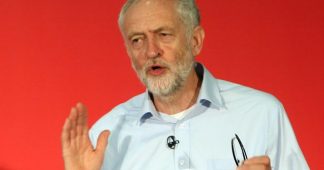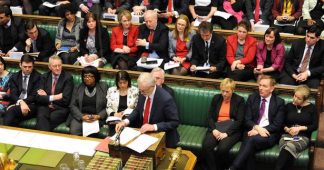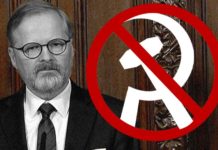Labour Party Economic Policy – An introduction to New Economics
By Elpida Papoutsaki
According to OECD data, in the UK, the average income of the richest 10% is almost 10 times higher than the income of the poorest 10%. Especially during the years 2005-2011 the gap has widened. The level of income inequality in the UK has been well above the OECD average. Although the UK economy managed to create jobs since the recession, productivity growth has been low, reflected in low wage growth with working households at risk of poverty. Both the Coalition government and the Labour party are committed to balancing the budget. The Coalition aims to achieve that through spending cuts, protecting however the areas of health and education. However the Labour party strongly criticizes the government’s policy and proposes another way of balancing the budget. 1
As the leading opposition party and after the consolidation of the leadership by Jeremy Corbyn, the Labour party has explicitly expressed its view on economic policy making. This article aims to sum up the main issues stressed by the party representatives. The theoretical approach is inspired by New Economics, a rather critical view on free market, which struggles to capture the modern issues of global warming, globalization, technological advances and how they can be addressed in the economy, all under the creative rather than indifferent or oppressive stance of the state.
First of all, the new leadership opposes austerity measures as a way of balancing budget. However the party acknowledges the importance of balancing government’s day to day spending. According to John Mc Donnell, Shadow Chancellor of the Exchequer since September 2015, the approach used by governments so far has been mistaken. There has to be an alternative and that would be a set of actions. Among others, a step is the creation of the party’s Economic Advisory Council (EAC), which is the backbone of New Economics, the economic policy makers should be open to new ideas and in rapport with businesses and other actors of the economy. An important aspect is the delivering of the needed infrastructure which would expand economic activity and raise tax revenues. This approach also sets limits to nationalization as it centralizes power, proposing decentralization as it is considered to include communities around the country into decision making, in a more democratic governance. Furthermore, Institutions such as the Treasury and the Bank of England should be democratized according to the new leadership. As for multinational corporations there has to be contribution via taxation.2
In his speech, at Bloomberg, Jeremy Corbyn, leader of the Labour party, elaborated on issues like job contracts, housing and investment. Corbyn sees Brexit as a rejection to the economic policy applied. He points out that wealth is concentrated to the very few, workers face poverty and insecurity. To address these issues he focuses on the need to deliver investment to create wealth. Such investment includes machinery, technology, new ideas and skills advancement, digital communication network, scientific research (up to 3%GDP) etc. which will raise productivity. This investment is estimated around 500 hundred billion pounds.3
According to the manifesto of the Labour party, measures such as stopping the payment of the winter fuel allowance to the wealthiest 5% of pensioners and capping child benefit rises for the next two years would help balance the books without extreme cuts. It is stressed in the manifesto that taxation would burden mostly those with incomes more than 150000 pounds and there would be tough penalties for tax evaders. Among other goals is the increase of the National Minimum Wage to more than 8 pounds/hour by 2019, the ban on exploitative zero-hours contracts, the freeze of gas and electricity prices until 2017 and the establishment of a British Investment Bank, to lend money to small-medium-sized businesses.4 According to Corbyn, Regional development banks would be important too.3
As for housing, Labour government would impose rent controls, so that landlords would only be able to raise rents by less than inflation for the duration of the contract5. Finally, the party envisions Britain to be the leader of renewable economy, taking into consideration global issues like global warming and sustainable development.3
References:
- https://www.oecd.org/unitedkingdom/OECD-Income-Inequality-UK.pdf
- http://www.lse.ac.uk/publicEvents/pdf/2016-LT/20160216-Transcript-John-McDonnell-on-Labours-Economic-Policy.pdf
- https://www.youtube.com/watch?v=HstcINOn7YU
- labour.org.uk/manifesto/economy
- https://theguardian.com/politics/2016/may/21/jeremy-corbyn-labour-economy-re-industrialisation-digital-age
